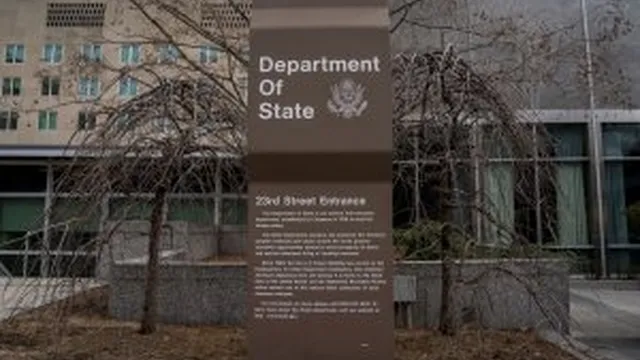
U.S. State Department meets nuclear scientists in Italy amidst Iran tensions
2025-07-02 03:47- U.S. State Department representatives met with over 80 nuclear forensics experts from 30 countries in Italy.
- The meeting discussed advancements in nuclear forensics and international cooperation in the field.
- This event underscored the ongoing global efforts to prevent nuclear terrorism and address the issue of nuclear proliferation.
Express your sentiment!
Insights
On July 1, 2025, U.S. State Department representatives participated in the annual Nuclear Forensics International Technical Working Group meeting held in Bologna, Italy. The meeting attracted over 80 experts from 30 nations focusing on advancements in nuclear forensics aimed at enhancing international cooperation in detecting and preventing nuclear terrorism. This gathering occurred against the backdrop of heightened global tensions, particularly following recent U.S. airstrikes on Iranian nuclear facilities, which President Donald Trump claimed significantly damaged Iran’s nuclear program. However, the head of the U.N. nuclear watchdog indicated that the strikes merely delayed Iran's development by a few months. The U.S. State Department's involvement reflects its ongoing commitment to nuclear security and nonproliferation. The Bureau of International Security and Nonproliferation played a pivotal role in organizing the gathering, underscoring the importance of nuclear forensics in identifying the sources and history of nuclear materials. This scientific analysis serves as a deterrent against potential nuclear terrorism while ensuring public safety. For nearly three decades, the Working Group has been dedicated to improving global nuclear forensics strategies to reduce the risks associated with nuclear materials. Discussions at the meeting included recent developments in nuclear forensics, addressing the need for enhanced capabilities and international exercises. This engagement is critical in the context of increasing threats related to nuclear weapons and state-sponsored terrorism. Additionally, the U.S. is concurrently addressing denuclearization efforts in North Korea, as articulated by State Department spokeswoman Tammy Bruce, reinforcing America's commitment to global nuclear nonproliferation. In summary, the gathering in Italy not only emphasized collaborative efforts among experts in the field but also highlighted the ongoing challenges posed by nations like Iran and North Korea in the realm of nuclear proliferation. The U.S. continues to take strategic steps to bolster international networks and protocols that contribute to global nuclear safety and security.
Contexts
Nuclear forensics is an essential component of international security, particularly in the contexts of nuclear nonproliferation and the prevention of nuclear terrorism. As nations increasingly recognize the potential threats posed by illicit nuclear materials and devices, the development of nuclear forensics has emerged as a critical area of focus. By utilizing advanced scientific techniques to analyze nuclear materials, countries can better understand the origin and history of these materials, thereby enhancing their ability to respond to nuclear incidents. This report presents the current status of nuclear forensics, emphasizing its significance in strengthening global security measures against nuclear threats. The complexity of nuclear forensics lies in the interdisciplinary nature of the field, which combines aspects of nuclear physics, chemistry, and law enforcement. When an incident involving nuclear materials occurs, forensic scientists can analyze samples gathered from the site to determine their composition, isotopic signatures, and any distinguishing features. This information allows authorities to trace the materials back to their source, which is crucial in identifying whether there has been a theft, diversion, or other illicit activity. As technology and methodologies in nuclear forensics continue to advance, the accuracy and reliability of these techniques also improve, leading to more effective investigations. International collaboration is fundamental in the field of nuclear forensics, as nuclear threats often cross national borders. To bolster collective efforts, organizations such as the International Atomic Energy Agency (IAEA) and the United Nations have undertaken initiatives to enhance nuclear forensics capabilities globally. These initiatives aim to provide training, share best practices, and establish standardized procedures for addressing nuclear incidents. Additionally, fostering partnerships between countries allows for the pooling of resources, expertise, and information, which is vital for effectively mitigating nuclear risks and enhancing overall security. Despite the progress made in nuclear forensics, challenges remain. Issues such as the limited availability of high-quality forensic samples, the need for rapid and effective response mechanisms, and the integration of nuclear forensics into broader security strategies must be addressed. Furthermore, it is critical to maintain a balance between security measures and the rights of individuals and nations. As technology evolves, staying ahead of potential threats requires ongoing investment in research and development as well as a commitment to international cooperation. By prioritizing nuclear forensics, the global community can significantly enhance its capacity to prevent and respond to nuclear incidents, ultimately contributing to a safer world.